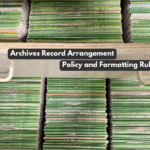As with many other modern systems, a significant number of new methods are being used. It is highly desirable to design, sell, connect, implement, deploy, and perform tasks with them, arrange to teach the public and bring the invented method to public use. Everyone who walks in the world of information knows that no scientific discovery/invention stays in one place. Conversion, change, and traditional rules are tried to introduce new regulations. In this case, information dissemination, information awareness, and information skills are negotiable.
Growth:
Industries, factories, trades, and similar specialized institutions rapidly spread information. Often more than doubling in the space of just a few years, the information world becomes ever more bloated. Information processing tools are also easier and more efficient. But not always reach the ultimate goal evenly. Electronic computers and assisted communication processes have already brought about a revolutionary change in information management. But the media cannot keep up with the rate at which information is swelling and growing. Information centers in developed countries disseminate various information under the title ‘at a glance’ by advertising in newspapers. A network is a productive and effective step in information control, circulation and management processes.
Information Awareness:
For many and in many subject areas, namely, the information source is considered an indispensable requirement. Not that he benefited from getting it, but getting it was ‘preferred’. Environment and circumstances are sometimes such that unfinished news gains importance. But the moment the full picture of the incident comes to hand, the earlier news loses its importance. A fundamental characteristic of an information-conscious society is curiosity, interest, and curiosity. People are more interested in knowing something when they are curious. Vision is the driving force to reach the goal. As a result, the system has reached such a level that the people sitting in the different villages of the United States are taking advantage of the electronic means of communication in the cities. Village information networks are benefiting cities, from large libraries to online systems. The world is getting smaller. The more people can control the spread of information. Just need to increase awareness.

Information Skills:
An information system is made up of designers, operators, and users—not a cohesive team or group, but each other’s peers. It is only through their combined efforts that a system succeeds. Skilled workers are needed both in the field of information and in the use of information media. Those who will use the media should be competent enough. Lawyers, news reporters, police, and teachers should know how to use information systems in their respective fields. Continuous use makes one proficient in that medium. In fact, there is no end to the experience.
Where Information People come from:
No subject is self-sufficient for study in the realm of knowledge, just as a human being is not self-sufficient. Human beings are interdependent according to the natural law of nature. This fact is evident both in the knowledge world and in the labor world. Even if the study is limited to a specific subject, the help of others is needed to get the information at the right time. Again, data scientists have to take help for scarce or very recent data. In both cases, it will be seen that the word ‘cooperation’ is present. No one can walk the path without cooperation.
The world that works with information is called the information, world; those who work are information scientists; the science of collecting, storinthe g and organizing information and subsequently ensuring timely retrieval is called information science. As a result of the massive expansion of modern science, especially the invention of computer technology, humans have come under control of the explosive information world. However, it should be remembered that information system is not a single self-sufficient thing, its operation and success depend on other things. Therefore, the information workforce says that those who can be identified are some computer scientists, some electronics communication experts, some skilled technicians in various branches of related technology, and some may be just information scientists. With the joint efforts of all of them, information technology is at the golden peak of success today. It should be noted that those who live daily with information technology and information science need to know at least a few things. For example-
- How information manpower and information technology supporting mechanical equipment are used;
- How information is stored, processed and presented to others;
- Ability to understand and evaluate a specific system by information personnel;
- Ability to apply efficient management techniques and;
- Advances in Design in Information Machines and Systems.
In fact, the following is a general discussion about some of the information fields from which information and manpower come:
Computer Science:
Essential to studying the book is to know about algorithms. The algorithm is a “set of steps of a procedure for doing calculations.”. From the point of view of information science, the algorithm is identified as ‘procedures for processing information’. It can be computer science or applied science, but in this case, the whole information management, information storage, and information retrieval process will be considered seriously. The basic purpose of studying computer science is to make information technology accessible to people.
Library Science:
The science related to the theory and practice of material, organization, arrangement and retrieval of recorded information. All activities and steps related to the arrangement of collected data collections, the physical and thematic description of documents, the creation of opportunities for research and the planning of systems for the efficient use of collected materials are called library science. In fact, all activities of library scientists are user-oriented. Ensuring user benefits is the religion of this science.
Information Science:
After the invention of computers, the successful application of new ways of presenting information from the library is initially called information science. Those who primarily use information science practices are natural scientists, biological scientists, etc. They specialize and group information in their respective fields.
Information scientists specialize in the circulation, organization, well-versed, and practical use of information. They are well versed in applying the right techniques for storing and retrieving information. They know how to organize information and how easily people can access the information. Information scientists always think about the practical benefits of people. It is the activity of information science and information scientists to ensure that the user can find the information at the right time by arranging the information in any way. Data science focuses on planning successful ways to ensure maximum use of information and data.
Management and Accounting:
The outlook for careers in information management and accounting is promising due to the increasing reliance on data-driven decision-making in business. There is a rising demand for professionals who can manage, analyze, and secure large volumes of data. In accounting, technological advancements such as AI and automation are transforming traditional role, which heightens the need for tech-savvy accountants. Additionally, there is a significant demand for experts who can integrate information management with accounting processes to enhance financial performance and ensure regulatory compliance. Overall, job opportunities in these fields are expected to grow as companies prioritize efficiency and transparency.
Engineering:
Electronic, computer and communications engineers are usually involved in the design of machines and their supporting spare parts and equipment. They are not usually involved in any user-facing activities. Rather, they are concerned about what difficulties they are facing in their system and what steps will be taken to improve their design or system. Industrial engineering people are more engaged in methodology for systems studies. Any of the above can serve as an excellent foundation for an information system.
Communication and Journalism:
Communication can be made in many ways, such as the word information can be done. On the one hand, such as telephone engineering can be meant advertising, copyright, etc. Information through information about communication and journalism refers to the preaching of information and distributing timely in qualified places.
I would like you to understand, please, what the article describes as an Information Science Profession. This is undoubtedly a challenging profession. There are many opportunities for developing a society rich in multi-diversification and participation in the formation of the country. Information, information explosion, time contraction—information science has turned into a standard and ideal locally recognized profession today. The library and information world is just worldwide because of their activities and their role in the world.



